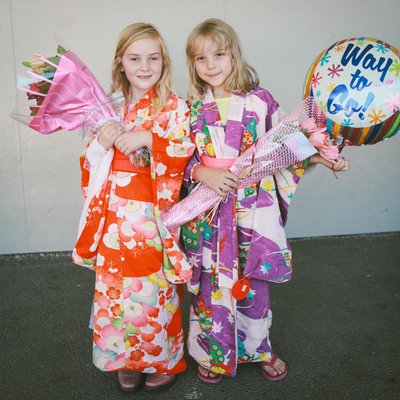
Budget cuts have left Oregon schools in rough shape. Eugene’s 4J School District is no different. However, despite the financial challenges, many public education alternatives exist in the area. Kerry Delf, communication coordinator for 4J School District, says there is a long tradition in Eugene of supporting alternative education, and some of the most popular local programs offer language immersion at the elementary level.
“In our school district we have four schools that provide language immersion,” Delf says: Charlemagne Elementary (French), Buena Vista Elementary (Spanish), El Camino Del Rio Elementary (Spanish) and Yujin Gakuen Elementary (Japanese). Around 1,100 Lane County students attend these programs.
Three of the four programs allow students to continue language immersion into the upper grades. El Camino Del Rio, the newest language immersion program in the area, does not. But El Camino Del Rio is unique in another way. The school offers a dual immersion program — 50 percent native English-speaking students attend alongside 50 percent native Spanish speakers — “working together to help each other learn,” Delf says.
“With this approach, students learn to read first in their native language,” says Susan Nakaba, principal at El Camino Del Rio. “Beginning in second grade, students receive literacy instruction in both English and Spanish every day. We strive for a 50-50 balance of instruction in Spanish and English in grades two through five. We also work to balance classes with equal numbers of native Spanish and English speakers.”
In a language immersion program, the learner’s second language is the medium by which subjects such as math, science and social studies are taught. At one time it was believed speaking two languages created a cognitive disadvantage in a learner, but new studies show otherwise. “Research tells us that students in dual immersion programs are able to transfer literacy skills from one language to another and ultimately earn equal or higher test scores than their single-language counterparts,” Nakaba says. “Students outperform their English-only peers on tasks that require problem solving, meta-cognition or patterning. Students of all backgrounds learn to appreciate and understand differences in cultures and traditions.”
Delf says there are a variety of reasons language immersion is strongly supported in the 4J School District — one of the biggest being 4J’s unique system of options. “As long as you live in the district you can attend a school of your choice,” Delf says, adding, “We allow students who do not live in the school district to attend our schools,” as long as a parent or guardian can provide transportation to and from school. Enrollment is decided by lottery, and “we provide priority to students of lesser means,” Delf says.
“I am a big fan of our immersion programs in Eugene,” says Laurie McNichols, whose daughter attended Charlemagne Elementary. “As global citizens, having a second language is essential. Educationally, research proves that language learning increases an individual’s capacity to learn.”
McNichols’ daughter Mia enjoyed her time at Charlemagne. “I liked learning the French language,” says Mia, who is going into her freshman year of high school. Mia says it was challenging to learn subjects like math and science in a foreign language, but she plans to continue studying French, while one day expanding into Latin, Russian and Arabic.